When people think about sea freight, most envision massive container ships cutting through the ocean. But, there is another, more agile player in maritime logistics: short sea shipping. Sonja Bouman, responsible for Special Equipment at WEC Lines, swapped the deep sea at French company CMA CGM for the shorter, busier European sea connections that this Dutch shipping company handles. “There are growth opportunities; that’s why I’m here,” she begins.
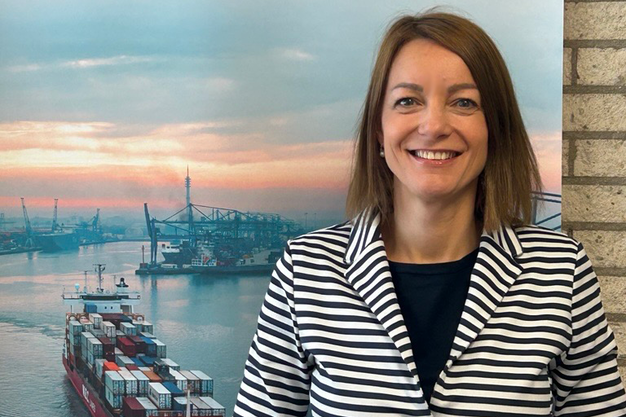
WEC Lines has been part of the Swiss MSC, the world’s largest container carrier, since 2007. However, WEC Lines, headquartered in Rotterdam, operates according to its own clear strategy. It excels in door-to-door solutions for both non-perishable and perishable cargo in the North Sea and European Atlantic coast areas.
Larger containers for shorter routes
The company deliberately uses 45-foot High Cube reefers for its refrigerated goods. These refrigerated containers are slightly longer and can handle more volume. “They’re ideal for multimodal transport. You can load them onto ships, trains, and trucks, and they can hold 33 Euro pallets. They’re, thus, more efficient than the 40-foot containers commonly used in deep-sea shipping, which can hold, at most, 23 Euro pallets.”
Four routes, multiple connections
WEC Lines routes connect northwestern Europe with four regions: Spain, Portugal, Morocco, and the Canary Islands. There is a year-round weekly shuttle service to Portugal (Leixões, near Porto, and Setúbal, near Lisbon) from Dublin and Liverpool, as well as from Hamburg, Rotterdam, Moerdijk, Antwerp, and Montoir (near Nantes). From Portugal, there are links to the Canary Islands and Morocco (Casablanca and, during the season, Agadir).
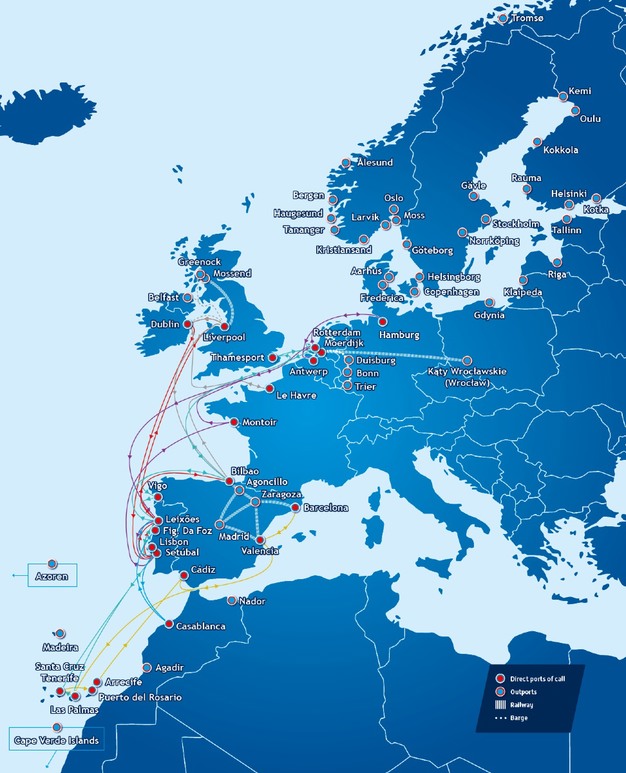
Northern Spain (Bilbao) has a once-a-week service that connects it with Dublin, Liverpool, and Le Havre in France. WEC Lines also has routes between the Spanish Mediterranean ports of Valencia, Alicante, Cartagena, Almería, and Málaga, as well as Barcelona, Valencia, Cádiz, and the Canary Islands.
Connecting the Spanish hinterland and coast
The Casablanca/Rotterdam voyage takes eight to ten days, a little longer than four days by truck. Direct road transport from Catalonia, Valencia, or Madrid to the Netherlands is faster than sea freight from Bilbao to the Spanish hinterland. That is done in combination with WEC Lines’ trains or trucks, depending on the period and volume. This multimodal provider can, however, offer good value for money. Especially for refrigerated products, like onions, garlic, and certainly frozen vegetables or potato products that do not suffer from being in transit for a few days longer.
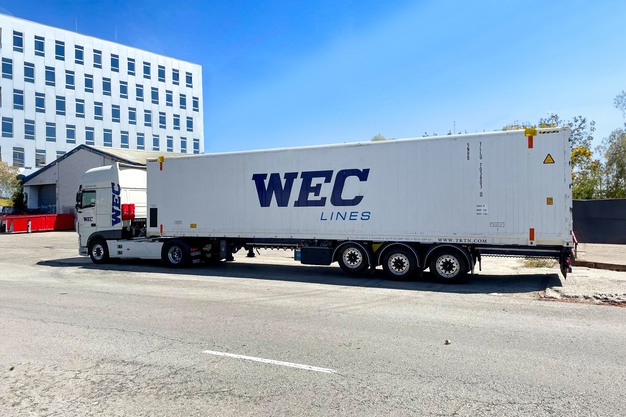
Small ports, no congestion
Some people are probably more familiar with Moerdijk than ports such as Montoir, Setúbal, and Leixões. WEC Lines calls at these smaller ports, which, according to Sonja, have an advantage. “There’s less congestion, so you can get in and out of the port faster and therefore provide a more reliable service,” she says.
Along with efficiency, short sea shipping is especially sustainable. “Our CO2 emissions per kilo of cargo transported are significantly lower than those of road transport. Also, we can use the GLEC method to give customers an EU-accredited calculation.” This is a valuable tool for companies that need to map their ecological footprint, something that is becoming increasingly mandatory within the EU.
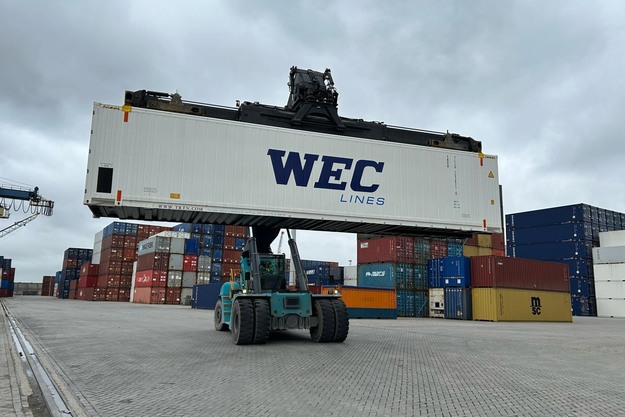
WEC Lines is working on making its fleet more eco-friendly, too, with things like modified propeller blades and silicone antifouling. This coating creates a smooth surface that prevents organisms, like algae and mussels, from attaching themselves to the propeller. That reduces friction with the water.
Reliability in times of scarcity
Sonja knows that sometimes during the year, driver or vehicle shortages hamper road transporters. “Prices rise, and then WEC Lines’ stable quarterly rates can make it an attractive option for fresh produce companies. We offer competitive prices for the journey from Portugal to Liverpool. In Spain, though, it’s sometimes slightly harder to compete with road transport. Short sea shipping will never replace all road transport, but it can give importers an alternative for shipments that don’t have to arrive just-in-time or on the same day,” she explains.
Door-to-door
WEC Lines offers complete door-to-door services, ensuring customers do not need to concern themselves at all with transshipment, transport planning, or documentation. “It’s similar to what logistics service providers would do for road transport. Only we use ships as our backbone.” Clients can also rely on insight and control over their cargo thanks to the newest equipment’s data loggers. These keep you continuously updated on temperature, location, and other environmental parameters.
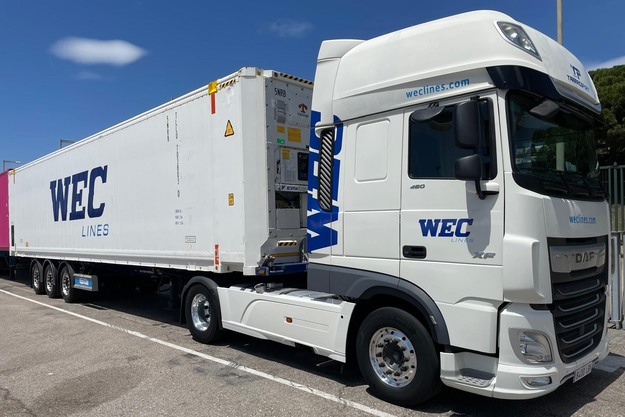
The fleet consists of 14 ships with capacities ranging from 2,777 to 7,450 tons. Depending on the vessel size, there is space for between 80 and 234 reefer plugs. “And that cooling capacity is being expanded further so we can serve the food industry and the fruit and vegetable sector even better for transport between Northwest and Southwest Europe,” concludes Sonja.
For more information:
Sonja Bouman WEC Lines
WEC Lines
www.weclines.com
[email protected]
Source: The Plantations International Agroforestry Group of Companies
